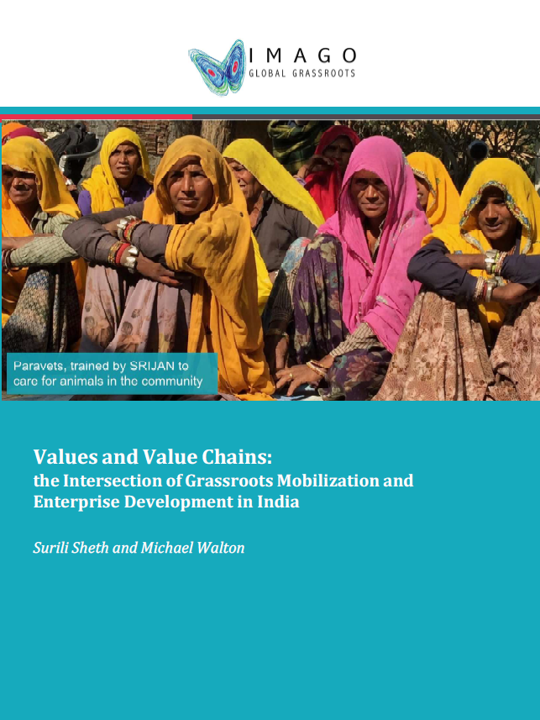
Working Paper
How Recife responded to the challenge of learning deficit...
May 12th 2025
School closures during COVID-19 caused learning losses worldwide, often compoundin...
Read More
A link to the full paper is here
Abstract: This paper explores a classic development problem: the “missing middle” between top-down action by the formal government and private sectors and the activities of grassroots organizations. It focuses on one aspect of this – the challenges faced by grassroots and community-based organizations in scaling up, specifically scaling up enterprise activity of women. Scaling up women’s enterprise activity is characterized by the tension between “values” and “value chains”— that is, between the values of the original social mobilization and the need for profitability within the enterprises. This tension exists within these organizations, and also between them and market or corporate actors. The paper is a reflective conceptualization, based on four years of work with several remarkable grassroots organizations, that form part of India’s long tradition of organizing and mobilizing disadvantaged groups. Its specific focus is on the Self-Employed Women Association (SEWA), a 45-year old labor union, owned by its 2 million members. We illustrate the nature and resolution of these tensions through a case study of one social enterprise (“RUDI”, the Rural Distribution Network) within SEWA that procures local produce from farmers, processes and then distributes them to the villages. Some 3000 “RUDI bens” (women entrepreneurs), all SEWA members, sell the products on commission, and the value chain is largely within local rural geographies. The tensions between the values, practices and identities of the women members and the revenue requirements of the enterprise that exist in RUDI are illustrative of the broader issues. We argue that the very nature of the tensions in scaling up—involving both adaptive challenges of a deeply values-based organization seeking to scale and the business and economic issues they face—requires an approach that is genuinely collaborative in exploring problems, and is essentially integrative of the adaptive organizational and business organizational challenges. Our methodological approach is developed through active engagement, and we draw on action research traditions in characterizing it as “Integrated Identity-based Action Research.” While the case we illustrate is about self-employed women entrepreneurs in India, we see this as an approach that is critical to a much wider set of the complex, or “wicked”, development problems, at the intersection of grassroots action, governmental and corporate behavior.